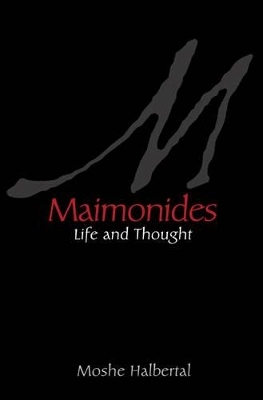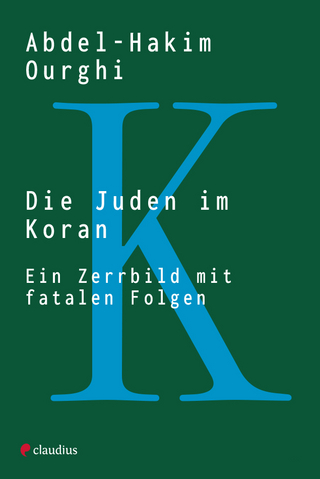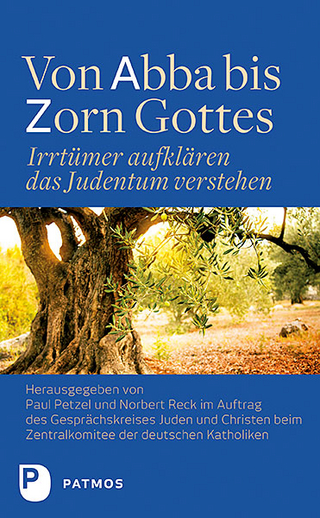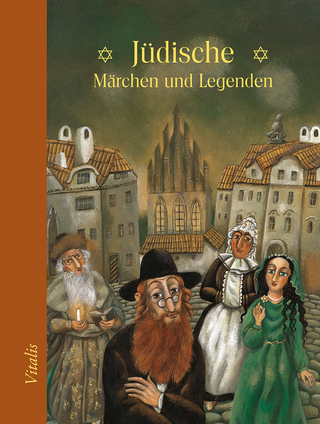
Maimonides
Princeton University Press (Verlag)
978-0-691-16566-0 (ISBN)
He discusses Maimonides's battle against all attempts to personify God, his conviction that God's presence in the world is mediated through the natural order rather than through miracles, and his locating of philosophy and science at the summit of the religious life of Torah. Halbertal examines Maimonides's philosophical positions on fundamental questions such as the nature and limits of religious language, creation and nature, prophecy, providence, the problem of evil, and the meaning of the commandments. A stunning achievement, Maimonides offers an unparalleled look at the life and thought of this important Jewish philosopher, scholar, and theologian.
Moshe Halbertal is the Gruss professor of Law at New York University, professor of Jewish thought and philosophy at the Hebrew University, and professor of law at IDC Herzliya in Israel. His books include On Sacrifice and Concealment and Revelation: Esotericism in Jewish Thought and Its Philosophical Implications (both Princeton).
Introduction 1 Chapter One: Moses the Man "Moses of his Generation" 7 Andalusia: 1138-1159 (?) 14 The Maghrib and Persecution: 1159-1166 23 Fustat: 1166-1177 33 Yemen and Islam: 1172 47 In the Sultan's Palace: 1178-1204 56 The Man Moses 74 Chapter Two: The Commentary on the Mishnah, the Book of Commandments, and the Philosophy of halakhah In the Laboratory of the Commentary on the Mishnah 92 The Purpose of the Commentary on the Mishnah 96 Controversy, Truth, and Interpretation 99 The Book of Commandments and the Structure of halakhah 107 On the Place of Revelation 111 Revelation and Interpretation 116 Interpretation in halakhah: Between Explanatory Principles and Deductive Principles 120 Halakhah and Prophecy 126 Chapter Three: Ethics and Belief in the Commentary on the Mishnah Principles of Faith 134 What Is Man: Immortality of the Soul, and the Afterlife 137 Resurrection of the Dead 142 The Ethics of Virtue and the Ethics of Obligation 148 The Sage and the Pietist 154 Nobility and Saintliness 158 Chapter Four: What Is Mishneh Torah? The Aims and Qualities of the Compilation 164 Mishneh Torah and the History of halakhah 168 The Mishnah of Rabbi Judah the Prince and Mishneh Torah 171 The Authority of the Talmud and the Authority of the Geonim 175 Mishneh Torah: The Moderate and Radical Alternatives 181 Mishneh Torah and Jewish Curriculum 184 Ambiguity and Codification 189 Codification and Self-Esteem 194 Chapter Five: Philosophy and halakhah in Mishneh Torah Love and Awe: Philosophy and Religious Experience 197 The Concept of the Divine: Eternal Universe and Creation ex Nihilo 202 Prophecy, Faith, and the Election of Israel 208 Halakhah, Magic, and Idolatry 216 Messianism, halakhah, and Nature 223 Chapter Six: Mishneh Torah and the Conceptual Understanding of halakhah Reorganizing the halakhah: Form and Content 229 "Laws Concerning Mourning" and the Organization of Mishneh Torah 236 Forging Concepts, Distinctions, and Generalizations 243 Mishneh Torah and Talmudic Sources 255 Three Functions of Aggadah in Mishneh Torah 262 Chapter Seven: The Guide of the Perplexed and Its Critique of Religious Language Concealed and Revealed in the Guide of the Perplexed 277 Idolatry and Religious Language 288 "For You, Silence Is Praise" 296 The Skeptical Reading and the Mystical Reading 301 Chapter Eight: The Guide of the Perplexed: Will or Wisdom? The Creation of the World: The Conservative Reading and the Philosophical Reading 313 The Doctrine of Prophecy 321 The Problem of Evil and the Purpose of Existence 329 Providence 335 The Reasons for the Commandments 341 The Commandments and the Philosopher's Spiritual Exercise 349 Conclusion Four Readings 354 Three Common Elements 358 Maimonides' Teachings in Historical Perspective 362 Maimonides' Writings 369 Bibliography 371 Index 381
| Verlagsort | New Jersey |
|---|---|
| Sprache | englisch |
| Maße | 156 x 235 mm |
| Gewicht | 539 g |
| Themenwelt | Geisteswissenschaften ► Philosophie |
| Geisteswissenschaften ► Religion / Theologie ► Judentum | |
| ISBN-10 | 0-691-16566-1 / 0691165661 |
| ISBN-13 | 978-0-691-16566-0 / 9780691165660 |
| Zustand | Neuware |
| Haben Sie eine Frage zum Produkt? |
aus dem Bereich


